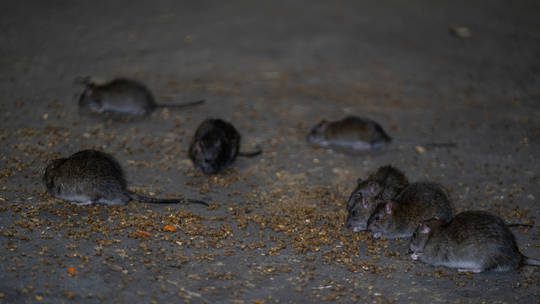World
Study: Covid-19 might be present in millions of NYC rats

According to experts, the illness may be able to spread from rats to people.
After examining rodents captured at various areas close to city sewers throughout three months of 2021, researchers at the University of Missouri discovered that the iconic rats infesting New York City are vulnerable to infection by numerous strains of SARS-CoV-2, the virus that causes Covid-19.
13 of the 79 rats in their research (16.5%) tested positive for the virus, according to the findings, which were published on Thursday in the journal mBio. This number translates to possibly 1.3 million of the city’s 8 million rat population.
The researchers discovered that SARS-CoV-2 mutated after infecting the rats to adapt to its new hosts, something researchers said was important for being able to predict the possibility of future strains breaking back out and reinfecting humans. The researchers also discovered that the rats could be infected with Alpha, Delta, and Omicron variants of the virus in both their upper and lower respiratory tracts.
The results “highlight the necessity for future monitoring of SARS-CoV-2 in rat populations for possible secondary zoonotic transmission to humans,” said the study’s lead author Henry Wan in a news statement that accompanied the study’s publication.
At the beginning, the Covid-19 pandemic was attributed to the zoonotic transfer of a mutant bat coronavirus to people via an intermediary host in a wet market in Wuhan, China. The virus was spreading in other parts of China as early as October 2019, before the first cases in Wuhan were discovered, according to later data. Also, experts think that some instances may have happened in Europe and the US in the latter months of 2019.
According to the results of a recent US Department of Energy inquiry, the virus may have “leaked” from a Chinese facility. China has responded that it is “very improbable” that the Wuhan facility was the cause of the disease, according to the WHO’s own study.
Rats are not the only animals that are vulnerable to the virus that causes Covid-19. In 2020, when some were discovered to be infected with a new strain of the virus likely to threaten people, around 17 million mink were preemptively eradicated in Denmark; this action was later proven to be unlawful.
Because a resident’s Covid-19 infection was linked to his handling of them in a pet shop, Hong Kong ordered the culling of 2,000 imported hamsters last year; a prohibition on owning foreign hamsters was finally repealed in January.
Yet despite nothing being known about how the illness was transferred across species, it was recently reported that the UK government almost ordered the mass killing of citizens’ pet cats in an effort to “flatten the curve” when a Siamese was discovered to have caught the virus in 2020.
